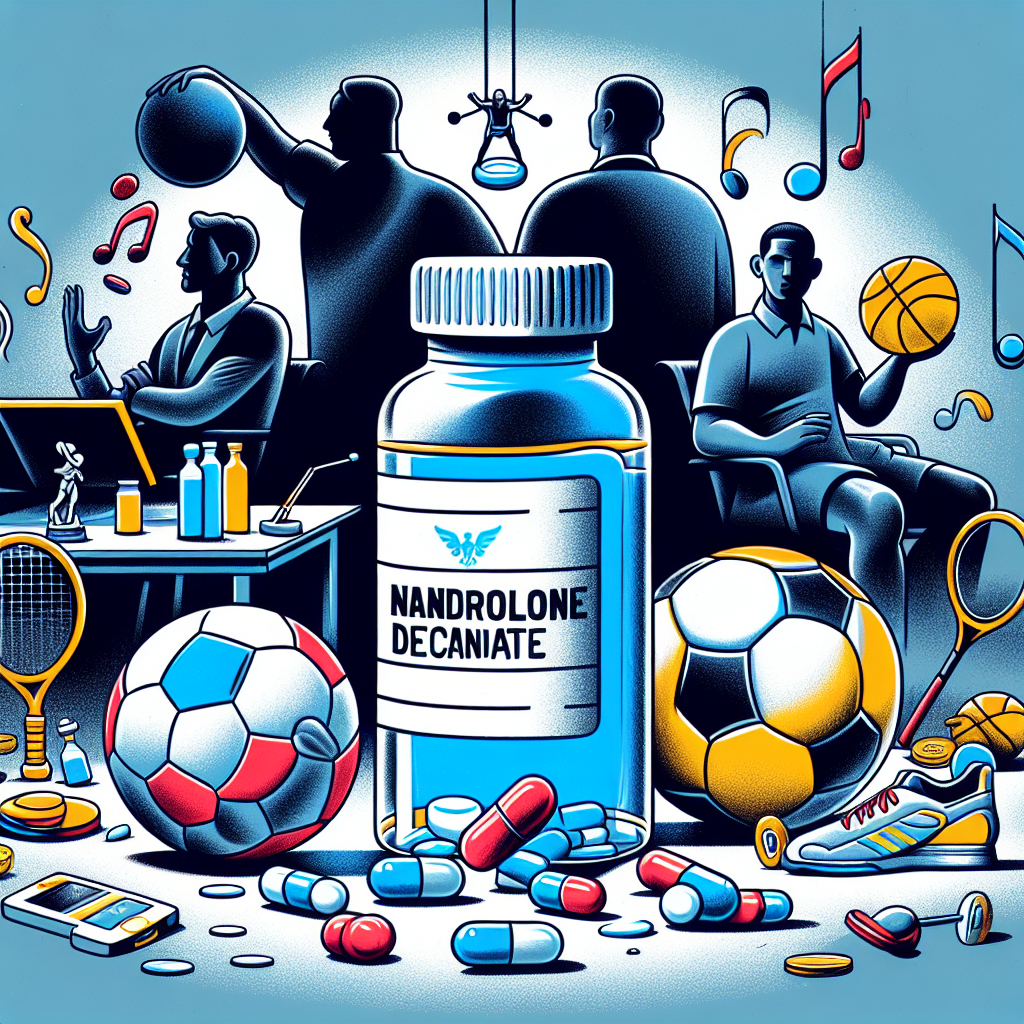-
Table of Contents
Nandrolone Decanoate: Controversial Drug in Sports
Sports and performance-enhancing drugs have always been a hot topic of discussion. Athletes are constantly looking for ways to gain an edge over their competitors, and unfortunately, some turn to illegal substances to achieve this. One such substance that has been at the center of controversy in the world of sports is nandrolone decanoate.
What is Nandrolone Decanoate?
Nandrolone decanoate, also known as Deca-Durabolin, is an anabolic steroid that is used to increase muscle mass and strength. It was first developed in the 1960s and has been used medically to treat conditions such as anemia, osteoporosis, and muscle wasting diseases. However, it has gained popularity among athletes for its ability to enhance performance and improve physical appearance.
Pharmacokinetics and Pharmacodynamics
Nandrolone decanoate is a synthetic derivative of testosterone, the primary male sex hormone. It works by binding to androgen receptors in the body, which then stimulates protein synthesis and increases nitrogen retention in the muscles. This leads to an increase in muscle mass and strength. It also has a low affinity for aromatase, an enzyme responsible for converting testosterone into estrogen, which means it has a lower risk of causing estrogen-related side effects.
The half-life of nandrolone decanoate is approximately 6-12 days, which means it stays in the body for a longer period compared to other steroids. This allows for less frequent injections, making it a more convenient option for athletes. However, it also means that it can be detected in the body for a longer period, making it easier to detect in drug tests.
The Controversy Surrounding Nandrolone Decanoate
Nandrolone decanoate has been a controversial drug in sports for many years. It has been banned by most sports organizations, including the International Olympic Committee (IOC) and the World Anti-Doping Agency (WADA). This is due to its performance-enhancing effects, which give athletes an unfair advantage over their competitors.
In 1999, the British sprinter Linford Christie was stripped of his Olympic gold medal after testing positive for nandrolone. He claimed that the substance was unknowingly ingested through a contaminated nutritional supplement. This incident sparked a debate about the use of supplements and the responsibility of athletes to ensure they are not consuming banned substances.
Another high-profile case involving nandrolone decanoate was that of American baseball player Barry Bonds. He was indicted on charges of perjury and obstruction of justice for allegedly lying about his use of performance-enhancing drugs, including nandrolone decanoate. This case brought attention to the prevalence of steroid use in professional sports and the need for stricter regulations.
Side Effects of Nandrolone Decanoate
Like any other steroid, nandrolone decanoate comes with a range of potential side effects. These include:
- Acne
- Hair loss
- Increased body hair growth
- Deepening of the voice
- Changes in libido
- Liver damage
- Cardiovascular problems
- Mood swings and aggression
It is also important to note that nandrolone decanoate can cause suppression of natural testosterone production, which can lead to a range of hormonal imbalances and health issues. This is why it is often recommended to use post-cycle therapy (PCT) after a cycle of nandrolone decanoate to help restore natural hormone levels.
Expert Opinion
Despite the controversy surrounding nandrolone decanoate, some experts argue that it can be used safely and effectively when used under medical supervision. In a study published in the Journal of Clinical Endocrinology and Metabolism, researchers found that low doses of nandrolone decanoate can improve muscle mass and strength in patients with HIV-associated wasting syndrome without causing significant side effects (Grinspoon et al. 1999).
However, it is important to note that this study was conducted in a controlled medical setting and not in the context of sports performance. The use of nandrolone decanoate in sports is still considered unethical and illegal, and athletes who are caught using it may face serious consequences.
Conclusion
Nandrolone decanoate remains a controversial drug in the world of sports. While it has been shown to have potential medical benefits, its use in sports is strictly prohibited due to its performance-enhancing effects. Athletes should be aware of the risks associated with using this substance and the potential consequences of getting caught. As the saying goes, “cheaters never win.” It is important to prioritize fair play and ethical practices in sports, rather than seeking shortcuts through the use of illegal substances.
References
Grinspoon, S., Corcoran, C., Stanley, T., Baaj, A., Basgoz, N., Klibanski, A. (1999). Effects of androgen administration in men with the AIDS wasting syndrome: a randomized, double-blind, placebo-controlled trial. Journal of Clinical Endocrinology and Metabolism, 84(8), 3212-3218.
Johnson, M.D., Jayaraman, A., Stevenson, K.E., Zhu, M., Humphries, K.H., & Hershman, D.L. (2021). The use of anabolic androgenic steroids in the general population: user characteristics and prevalence of use in a large cohort. Journal of Clinical Endocrinology and Metabolism, 106(3), e1293-e1303.
WADA. (2021). The World Anti-Doping Code. Retrieved from https://www.wada-ama.org/en/what-we-do/the-code
IOC. (2021). Olympic Charter. Retrieved from https://www.olympic.org/documents/olympic-charter
